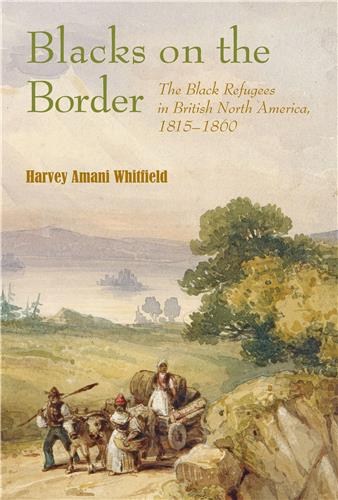Whitfield is unlikely to be surpassed in his analysis of the reasons for emigration to Nova Scotia....an excellent book.
Following the American Revolution, free black communities and enslaved African Americans increasingly struggled to reconcile their African heritage with their American home. This struggle resulted in tens of thousands of African Americans seeking new homes in areas as diverse as Haiti and Nova Scotia. Black refugees arrived in Nova Scotia after the War of 1812 with little in common but their desire for freedom. By 1860, they had formed families, communities, and traditions. Harvey Amani Whitfield’s study reconstructs the lives and history of a sizeable but neglected group of African Americans by placing their history within the framework of free black communities in New England and Nova Scotia during the nineteenth century. It examines which aspects of American and African American culture black expatriates used or discarded in an area that forced them to negotiate the overlapping worlds of Great Britain, the United States, Afro–New England, and the African American Diaspora, while considering how former American slaves understood freedom long before the Civil War.


“[A]n inspiration for other historians who want to understand race and identity in the Atlantic world.”
Journal of the Early Republic
Whitfield is unlikely to be surpassed in his analysis of the reasons for emigration to Nova Scotia....an excellent book.
Canadians, especially Nova Scotians, are indebted to Amani Whitfield, an American scholar, who first came to Nova Scotia in 1997 to study for his masters in history. After six years of research and writing and a recent Ph.D., he has written a powerful book, a tour de force. With insightful analysis, he describes how former American slaves from diverse backgrounds became Black Refugees in Canada and eventually formed a distinct culture of Black people before the American Civil War.
...[A]n inspiration for other historians who want to understand race and identity in the Atlantic world.
Whitfield writes history as an informed storyteller, not as a remote scientist, and so he brings to life, dexterously, the context and the complexity of the 2,000 or so African Americans who, as a result of a war policy, found themselves ‘liberated’ by British forces and dispatched to Nova Scotia between 1812-1815.
This study of black refugees to British Canada fills in another part of the puzzle that is African American history. Slowly the simplistic view of blacks fleeing to Canada on the legendary ‘underground railroad’ is evolving into a more authentic study of the spread of African culture throughout the northern hemisphere. Studying the scattered migration of ‘Diaspora’ of blacks away from slavery toward freedom is giving us a clearer picture of the scope of American history from early colonization, through the Civil War and Civil Rights to the modern day.
Originally researched, fully contextualized, persuasively argued, and leanly and lucidly written, this ostensibly regional study is in fact a work of transborder and continental, if not hemispheric, history. Some 35 years ago another American historian, the late Robin Winks, put African-Canadian history on the scholarly map. It now falls to Harvey Amani Whitfield to take up the torch and write a braver and newer history which takes seriously the African-Canadian experience and fully integrates it into the wider history—not only of the Diaspora and the Black Atlantic, but also of Blacks in the British Empire.
By focusing his lens on Nova Scotia, Harvey Amani Whitfield illuminates the experience of one of the largest and yet most neglected free black communities in all of antebellum North America. This lucid monograph weaves together several important strands of historiography as it seeks to understand the complex identity African-American refugees constructed for themselves on the fringes of the Atlantic world. Perhaps not since Robin Winks has a scholar done as much to illuminate the black experience in Canada.
In Blacks on the Border, Harvey Amani Whitfield details the rich multifaceted history of how black people from disparate American backgrounds formed a distinctive communal identity in Nova Scotia in the first half of the nineteenth century. Written in lucid, engaging prose, this foundational work will be crucial to everyone studying the Black Atlantic, particularly those interested in the history of African peoples in New England and maritime Canada.
Blacks on the Border makes an admirable contribution to the history of African Canadians and to Diaspora Studies. Dr. Whitfield’s engaging narrative provides an intimate portrait of the Nova Scotia Refugee experience, and links it convincingly to Black America and the Black Atlantic beyond. It is an essential and enjoyable read.
HARVEY AMANI WHITFIELD is Assistant Professor of History at the University of Vermont.

Founded in 1971, Brandeis University Press is a nonprofit publisher dedicated to publishing innovative, high-quality books for a general audience, as well as scholarship that advances knowledge and promotes dialogue in the humanities, arts, and social sciences around the world.
© Copyright 2024, Brandeis University Press
Brandeis University Press
Goldfarb Library 69-235, MS 046
Brandeis University
415 South Street
Waltham, MA 02453
(781) 736-4547
pressinfo@brandeis.edu

Stay up to date with the newest titles and promotions from Brandeis University Press—while saving 20% on your first purchase.